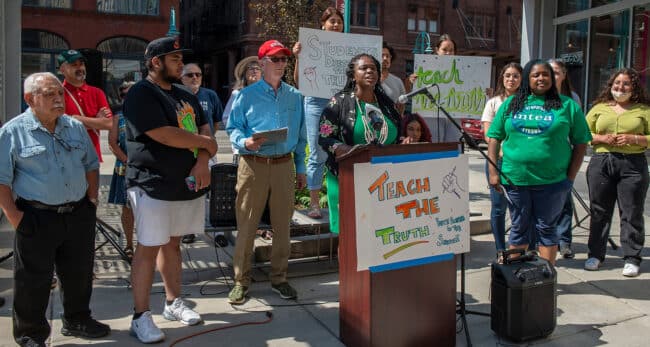
Milwaukee, June 12, 2021. By Barbara Miner.
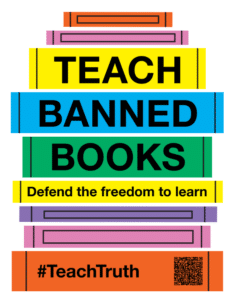 Lawmakers in at least 44 states have attempted (and in some cases succeeded) to pass legislation that would require teachers to lie to students about the role of racism, sexism, heterosexism, and oppression throughout U.S. history. For example, the 2021 law in Florida forbids teaching “that racism is not merely the product of prejudice, but that racism is embedded in American society and its legal systems in order to uphold the supremacy of white persons.”
Lawmakers in at least 44 states have attempted (and in some cases succeeded) to pass legislation that would require teachers to lie to students about the role of racism, sexism, heterosexism, and oppression throughout U.S. history. For example, the 2021 law in Florida forbids teaching “that racism is not merely the product of prejudice, but that racism is embedded in American society and its legal systems in order to uphold the supremacy of white persons.”
In response, the Zinn Education Project launched a pledge to teach truth for educators to sign on line and to make a public commitment at historic sites. The third annual Teach Truth Day of Action was in June of 2023. Teachers are being harassed and threatened for signing the pledge.
Below we offer articles with analysis of the anti-history education campaign, graphics, and opportunities to respond.
Contents
#TruthBeTold Toolkit | Background Reading | Videos | Graphics
Bills and Other Measures | Attacks on Teachers
Teach Truth Syllabus | More Resources
Educational Gag Orders
2023 map from PEN America.
#TruthBeTold Toolkit
This dynamic African American Policy Forum #TruthBeTold flipbook toolkit provides resources on how to challenge the anti-history education legislation sweeping across the United States. Learn more about the AAPF Truth Be Told and Stop the Backlash campaigns.
#TBT Threat to Our Democracy | Sep 2022
Background Reading
The Great Textbook War by Ramtin Arablouei, Rund Abdelfatah, Lawrence Wu, Casey Miner, Julie Caine, Anya Steinberg, Devin Katayama, Cristina Kim, Peter Balonon-Rosen, NPR’s Throughline (March 21, 2024)
What is school for? Over a hundred years ago, a man named Harold Rugg published a series of textbooks that encouraged students to confront the thorniest parts of U.S. history: to identify problems, and try and solve them. And it was just as controversial as the fights we’re seeing today.
Teachers Censor Themselves on Socio-Political Issues, Even Without Restrictive State Laws by Ileana Najarro, Education Week (Feb. 15, 2024)
Two-thirds of teachers across the nation said they were deciding on their own to limit discussions of political and social issues in class, including those in states without laws restricting such instruction, according to new survey results from the RAND Corporation.
The War on Black Educators and Wokeism by David A. Love, LA Progressive (Oct. 1, 2023)
Whether in college or on the K-12 level, the ongoing purge of Black teachers, professors, educators, administrators and Black studies will have a devastating impact not just on Black students but on all students, society in general and the educational system as a whole.
On the Frontlines of the Fight Against Classroom Censorship by Anita Little, American Civil Liberties Union (Sept. 15, 2023)
The effort to constrain free speech in the classroom reflects a broader movement by state legislators to restrict civil liberties across the board, including voting rights, LGBTQ equality, and gender equality.
No, Public Education Isn’t Too Woke. It’s Barely Even Awake by Bettina L. Love, EducationWeek (July 14, 2023)
The idea that wokeness is taking over public education is nothing more than a talking point — it is a hoax. At best, it reflects education’s meager attempt to start a conversation about how America’s public school system preserves inequities.
The Fixation on Anti-Trans Legislation with Chase Strangio on the Chris Hayes Why Is This Happening? podcast (April 4, 2023)
Chase Strangio of the ACLU discusses how politics has eclipsed healthcare in some cases, anti-transgender legislation being used as a gateway to broader government control and why conversations about trans people is often predicated on fear and confusion. He also talks about the ongoing political and legislative fights to protect bodily autonomy, gender expression and personal freedom.
‘Just the tip of the iceberg’: Kimberlé Crenshaw warns against rightwing battle over critical race theory by Gloria Oladipo, The Guardian (March 4, 2023)
The professor who is a leading voice on critical race theory has warned that the rightwing battle against racial justice education not only threatens US democracy, but encourages a revival of segregationist values and policies.
The Meaning of African American Studies interview with Robin D. G. Kelley by Keeanga-Yamahtta Taylor, The New Yorker, (
It’s an ongoing struggle to roll back anything that’s perceived as diminishing white power. They want to convince white working people—the same white working people who have very little access to good health care and housing, whose lives are actually really precarious, as they move from union jobs to part-time, concierge labor to make ends meet—that somehow, if they can get control of the narrative inside classrooms, their lives would be better. Racism actually damages all of our prospects and futures.
Critical Race Theory, Intersectionality, and the Right-Wing War on Public Education with Kimberlé Crenshaw, Democracy Now! (Feb. 6, 2023)
Nobody can be surprised when suddenly this effort to stomp out critical race theory turns out to be an effort to make antiracism unspeakable, to make queer studies undoable, to make intersectionality — one of the most widespread concepts across the disciplines — something that college-directed students cannot take or can only take if the states allows them to. Anybody who’s concerned about our democracy, anyone who’s concerned about authoritarianism has to wake up and pay attention to this, because this is how it happens.
National Study Reveals 1 in 4 Teachers Altering Lesson Plans Due to Anti-Critical Race Theory Laws by Asher Lehrer-Small, The 74 (Jan. 25, 2023)
In the first national study [by the Rand Corporation] of how the GOP’s classroom censorship policies have changed the teaching profession, thousands of educators expressed confusion over what they can and can’t cover in lessons. Nearly 1 in 4 said they have altered their curricula so parents and officials won’t find their teachings controversial.
A Visit to the Banned-Book Bus With a Scholar Who Helped Develop Critical Race Theory by Janell Ross, Time (Oct. 28, 2022)
“You’ve heard about gerrymandering our vote, gerrymandering our districts,” Crenshaw says to the roughly 100 people gathered there. “What I want to talk about,” she says, “is how they gerrymander our history — and how gerrymandering our history is what they are using to undermine our ability to link our present to the past.”
What Happens When American Children Learn About Racism? by Neil Lewis Jr., FiveThirtyEight (June 17, 2022)
It’s hard not to look at these results and think — great! — if only our schools taught more critical histories of the U.S., it could improve how different racial groups interact with each other. But that’s not what’s happened in the last few years. In fact, there is currently an active push to restrict how race and racism are taught in schools: Between January 2021 and April 2022, almost 200 bills were introduced across the U.S. to ban the teaching of critical perspectives on the history of the United States.
Many More Articles
The Backlash Against C.R.T. Shows That Republicans Are Losing Ground by Jamelle Bouie, The New York Times (Feb. 4, 2022)
Spurred by a wave of youth protest that revealed (and then underscored) the extent to which the conservative movement had failed to inculcate, in the next generation, its view of what America is, this effort to gag any discussion of the United States that doesn’t affirm a triumphant narrative of national innocence is a clear and obvious attempt to make up for lost time.
Teachers Could Face Penalties for Lessons on Race, Gender, Politics from the Fresh Air podcast on National Public Radio (Feb. 3, 2022)
Across the U.S., educators are being censored for broaching controversial topics. Since January 2021, researcher Jeffrey Sachs says that 35 different states have introduced 137 bills limiting what schools can teach with regard to race, American history, politics, sexual orientation and gender identity. One proposed law in South Carolina, for instance, prohibits teachers from discussing any topic that creates “discomfort, guilt or anguish” on the basis of political belief. We talk about these bills and laws and their implications.
Inside Mississippi’s Only Class on Critical Race Theory by Molly Minta, Mississippi Today (Feb. 2, 2022)
But the younger generation in Mississippi is more perceptive than conservatives tend to give them credit for, Murphree said. Children will always be able to see how racism organizes society, even if their teachers are banned from talking about it. Murphree grew up seeing it; critical race theory just gave her a way to talk about it.
Steep Rise in Gag Orders, Many Sloppily Drafted by Jeffrey Sachs, PEN America (Jan. 24, 2022)
It has been an extraordinary month for educational gag orders. Over the last three weeks, 71 bills have been introduced or prefiled in state legislatures across the country, a rate of roughly three bills per day. For over a year now, PEN America has been tracking these and similar bills. This is where things stand today.
As States Build Barriers to Racial Justice Teaching, Educators Fight Back by Rachel M. Cohen, Rethinking Schools (Jan. 3, 2022)
Recognizing the danger this sort of censorship poses to students and society, teachers nationwide have been standing up to register their resistance and solidarity, organizing rallies, supporting school board candidates who reject these bills, and doubling down on their own efforts to learn and teach about race.
How Picking On Teachers Became an American Tradition: And why spying on the “bums” has been terrible for schools by Adam Laats, Slate (Jan. 28, 2022)
For a full century now, conservative politicians have attacked teachers to score easy political points. This, despite the fact that teachers, as a group, tend to consider themselves “moderate” (43 percent) or even “conservative” (27 percent), and their political views have long tended to match those of their local communities. Nevertheless, scare tactics about subversive teachers have been too tempting for politicians to resist. But although targeting teachers might score a short-term payoff at the ballot box, those attacks have always harmed public schools by driving teachers away.
Confronting the Right-Wing Attacks on Racial Justice Teaching by Rethinking Schools editors (Fall 2021)
We must continue to teach for justice by helping our students see injustice, imagine possible remedies, and develop the tools to enact them. These laws are history unfolding, and they too belong in lesson plans, for students to analyze and judge, as with any other current event of national significance. If our curriculum is silent about this contemporary struggle over what we teach in school, we rob our students of a critical lesson about the politics of knowledge and education.
Kimberlé Crenshaw on Teaching the Truth About Race in America ACLU podcast (Aug. 2021)
One of the reasons that this misinformation campaign has been so successful is that most reporters start by asking, what is it about critical race theory that has inspired so much anger? So effectively, this campaign works because it casts a gaze upon us from a hostile, misinformed, intentionally divisive focus and then asks us to explain ourselves. . . . So they use a framework that people don’t really know much about and they pour into it a whole range of racial grievances, discomforts, anxieties and say ‘this is the thing that is going bump in the night. These are the things that are coming to get you. This is the thing that you need to mobilize around in order to save yourselves.’ This is a tried and true strategy. So the main thing I want people to try to do is consider the source, draw the connections, see where the funding is coming from, see where the contradictions are.
Right-Wing Legislators Are Trying to Stop Us from Teaching for Racial Justice. We Refuse by Rethinking Schools editors (Summer 2021 issue)
“The alphabet is abolitionist.”
This powerful statement comes from an 1867 Harper’s Weekly editorial rallying its mostly Northern readers to the fight for robust public education as part of the post-Civil War reconstruction of the South. It rightly rooted this struggle in the violent denial of literacy under the slavocracy. In that context, learning — or teaching others — to read and write was indeed abolitionist.
The political project of white supremacy has always included attacks on education and those attacks continue in 2021. Today’s Republican Party is not so bold as to suggest educators be prohibited from teaching their pupils to read the alphabet, only that we be prohibited from teaching them to read the world. Continue reading.
The Attack on Anti-Racist Teaching Attacks Environmental Justice Teaching by Bill Bigelow in Rethinking Schools (Summer 2021 issue)
The right-wing legislation would deny students climate literacy. Racial inequality — and the struggle against it — is at the heart of the climate crisis.
Why the panic over “critical race theory” is the perfect right-wing troll: Trying to debunk the lies about “critical race theory” is a distraction — but the hysterics have huge implications by Amanda Marcotte, Salon (June 15, 2021)
It is important to note that the fabricated fury over “critical race theory” is a cleverly constructed right-wing troll. Liberals who want to respond with a quick, easily digested rebuttal are instead boxed into a frustrating corner. Because pointing out that critical race theory is not being taught in public schools is a trap, as it could be construed to imply that there’s something wrong with critical race theory. And any straightforward defense of critical race theory implies that schoolchildren are somehow expected to understand graduate school-level academic theories. But in fact, the real issue at hand is that conservatives don’t want white kids to learn even the most basic truths about American history.
Outlawing the Truth: Republicans want students to learn a mythological version of U.S. history because the reality of the past threatens their power in the present by Adam Sanchez, The Progressive (Aug. 9, 2021)
What Republican politicians pushing these bills want taught is the version of history found in the corporate textbooks shaped by Texan conservatives, where the three-fifths clause is characterized as a “compromise” among the founding fathers (about half of whom enslaved people), where Martin Luther King Jr. is played on a loop repeating his famous line about judging people based on “the content of their character,” and where debates about unequal and segregated schools ended decades ago.
This is the educational equivalent of the “Big Lie” that Trump won the election, occasioning and the wave of voter suppression laws promoted by the same political forces.
State GOP lawmakers try to limit teaching about race, racism by Bryan Anderson, Associated Press (May 29, 2021)
Kimberlé Crenshaw, executive director of the African American Policy Forum, was among those who helped popularize critical race theory in the 1970s and 1980s as a response to what she and others felt was a lack of progress following passage of civil rights legislation in the 1960s.
She said Republicans are twisting the concept to inflame racial tensions and motivate their base of mostly white supporters.
“This is a 2022 strategy to weaponize white insecurity, to mobilize ideas that have been mobilized again and again throughout history, using a concept or set of ideas that they can convince people is the new boogeyman,” Crenshaw said.
The fight to whitewash US history: ‘A drop of poison is all you need’: At least 15 states are trying to ban schools from teaching critical race theory and the 1619 Project. The reactionary movement stretches back to the 1920s and the KKK by Julia Carrie Wong, The Guardian (May 25, 2021)
The laborious project of establishing truth in the face of official lies is one that Americans embraced during the racial reckoning of the summer of 2020, whether it was individuals speaking out about their experiences of racism at work, or institutions acknowledging their own complicity in racial injustice. For a time, it seemed that America was finally ready to tell a more honest, nuanced story of itself, one that acknowledged the blood at the root.
But alongside this reassessment, another American tradition re-emerged: a reactionary movement bent on reasserting a whitewashed American myth. These reactionary forces have taken aim at efforts to tell an honest version of American history and speak openly about racism by proposing laws in statehouses across the country that would ban the teaching of “critical race theory”, the New York Times’s 1619 Project, and, euphemistically, “divisive concepts”.
State Lawmakers Are Trying to Ban Talk About Race in Schools by the ACLU (May 14, 2021)
A nationwide attempt to censor discussions of race in the classroom is underway. These bills don’t just set back progress in addressing systemic issues, they also rob young people of an inclusive education and blatantly suppress speech about race.
What is critical race theory and why did Oklahoma just ban it?: The theory, drawing the ire of the right, helps us understand our past by Kathryn Schumaker, The Washington Post (May 19, 2021)
And so we cannot talk about students’ rights without talking about race — something that CRT facilitates. We know that racial disparities in school punishment are a significant and persistent problem. Critics of the “school-to-prison pipeline” note that students who are suspended are more likely to be arrested and swept into the criminal justice system.
. . . In short, CRT can help inform educators’ understandings of the subjects they teach and of how school policies can disproportionately harm students of color. The true cost of abolishing CRT in schools will be making the pursuit of racial justice in Oklahoma schools that much harder to achieve.
We Need to Teach the Truth About Systemic Racism, Say Educators by Brenda Alvarez in NEA Today (May 27, 2021)
For more than 20 years, Misty Crompton has taught middle school social studies in Derry, N.H., and she prides herself on using a variety of well researched, scholarly documents, primary sources, and other tools to help students learn the history and experiences — whether Black or White, Latino or Asian, Native or newcomer—of those living within the United States.
“It’s called good teaching, to tell truths and have students look at a variety of perspectives and experiences — and a rich landscape of experiences. Otherwise, it’s just propaganda,” Crompton says.
The GOP’s ‘Critical Race Theory’ Obsession: How conservative politicians and pundits became fixated on an academic approach by Adam Harris, The Atlantic (May 7, 2021)
Most legal scholars say that these bills impinge on the right to free speech and will likely be dismissed in court. “Of the legislative language so far, none of the bills are fully constitutional,” Joe Cohn, the legislative and policy director of the Foundation for Individual Rights in Education, told me, “and if it isn’t fully constitutional, there’s a word for that: It means it’s unconstitutional.” This does not appear to concern the bills’ sponsors, though. The larger purpose, it seems, is to rally the Republican base—to push back against the recent reexaminations of the role that slavery and segregation have played in American history and the attempts to redress those historical offenses. The shorthand for the Republicans’ bogeyman is an idea that has until now mostly lived in academia: critical race theory.
“This Critical Race Theory Panic Is a Chip Off the Old Block: How 20th-century curriculum controversies foreshadowed this summer’s wave of legislation” by Gillian Frank and Adam Laats, Slate (June 18, 2021)
Earlier battles over curriculum provided the template for today’s anti-CRT, anti–1619 Project political campaigns. In the late 1930s, for instance, activists in right-leaning patriotic groups such as the Daughters of the American Revolution and the American Legion warned their fellow Americans about a subversive set of textbooks. The fact that the textbooks written by Columbia professor Harold Rugg were widely popular and had been used for years in schools across America did not matter. The books, conservatives warned, represented an attempt by “radical and communistic textbook writers” to turn American children against America.
“The Tulsa Race Massacre Went Way Beyond ‘Black Wall Street’” by Robin D. G. Kelley, Truthout (June 1, 2021)
Kelley discussed the attack on Critical Race Theory, explaining that “Critical race theory (CRT) exposes the structure through an ‘intersectional’ framework of race, class and gender with the intention of interrogating how power is maintained and inequality reproduced, despite a liberal legal foundation that promises inclusion and ‘equality.’” Read full interview.
Guest Blog: Where Does the Bizarre Hysteria About ‘Critical Race Theory’ Come From? Follow the Money! by Isaac Kamola, Inside Higher Ed (June 3, 2021)
This raises the obvious question: Why are so many members of the 1776 Commission — and the anti-CRT onslaught more generally — so closely tied to Koch network think tanks and political organizations?
Answer: because academic, journalistic and movement efforts to critically interrogate the lasting impact of slavery and American racism fundamentally challenge the free market fundamentalist ideology this network has mass-produced for decades. Koch network libertarians have propagated the fantasy that we all do (or should) live in a radically free market, populated by unraced and ungendered free individuals, all pulling ourselves up by our proverbial bootstraps.
“Secretive ‘dark money’ network launches anti-critical race theory campaign” by Alyce McFadden, Open Secret (June 30, 2021)
A deep-pocketed “dark money” group is spending “well over $1 million” on an ad campaign against the inclusion of racial justice topics in K-12 curricula. The Concord Fund is a conservative dark money group better known as the Judicial Crisis Network. . . . The Concord Fund’s latest identity comes in the midst of the GOP’s furor over critical race theory, a much-discussed but little-understood academic theory that suggests the legacies of slavery and segregation influence institutional and systemic racism today. Some Republican lawmakers have said critical race theory is “anti-American” and promotes discrimination against white people.
The debate over how school children are taught about slavery, civil rights and racism has become the most recent battle in the culture war between conservatives and progressives. And Republicans are gearing up to use the controversy as political fodder during the 2022 midterms.
As states place new limits on class discussions of race, research suggests they benefit students by Matt Barnum, Chalk Beat (July 8, 2021)
A handful of recent studies have found that students are more engaged in school after taking classes that frankly discuss racism and bigotry — just as some educators like Mason fear such discussions could be threatened by a wave of broad state laws designed to limit the teaching of what some are calling “critical race theory.”
Culture War Against Education Archive
Statements, analysis, case studies and more compiled by Historians for Peace and Democracy.
Statements
We Reject the Whitewashing of AP African American Studies
African American History teachers in Philadelphia write an open letter to the College Board and social studies teachers.
The White Supremacist Attack on Education
Statement by veterans of the Student Nonviolent Coordinating Committee in defense of teaching honestly in Florida and around the United States.
Open Letter from CRM Veterans to Teachers: We’ve Seen This Before and We Stand With You
Open letter from Civil Rights Movement veterans in support of teachers who pledge to teach the truth despite the new wave of teacher-intimidation and thought-suppression laws.
Research
Educating for a Diverse Democracy: The Chilling Role of Political Conflict in Blue, Purple, and Red Communities
The UCLA report, “Educating for a Diverse Democracy: The Chilling Role of Political Conflict in Blue, Purple, and Red Communities,” finds that, in the midst of political conflicts, students have limited opportunities to engage in learning and respectful dialogue on controversial topics, and it’s become harder to address rampant misinformation. The highly charged environment has also led to marked declines in support for teaching about race, racism, and racial and ethnic diversity. Meanwhile, harassment of LGTBQ youth has increased. Continue reading NEA Today interview about the report.
Videos
Educators Ungagged: Teaching Truth in the Era of Racial Backlash on Nov 3, 2021
An episode of AAPF’s Under the Blacklight shines a spotlight on the experiences of educators who have been victimized by the legislative campaigns against teaching K-12 students about the realities of race- and gender-based oppression in the United States, past and present. Hosted by AAPF Director of Strategic Initiatives Sumi Cho. Featuring Lilly Amechi, Stacey Davis Gates, Amy Donofrio, Matthew Hawn, Brittany Hogan, Dr. James Whitfield, and Leah Watson.
Critical Race Theory: Last Week Tonight with John Oliver on Feb 21, 2022
Graphics
Here are graphic comparisons of education with and without Critical Race Theory, posted with permission of cartoonist Benjamin Slyngstad.
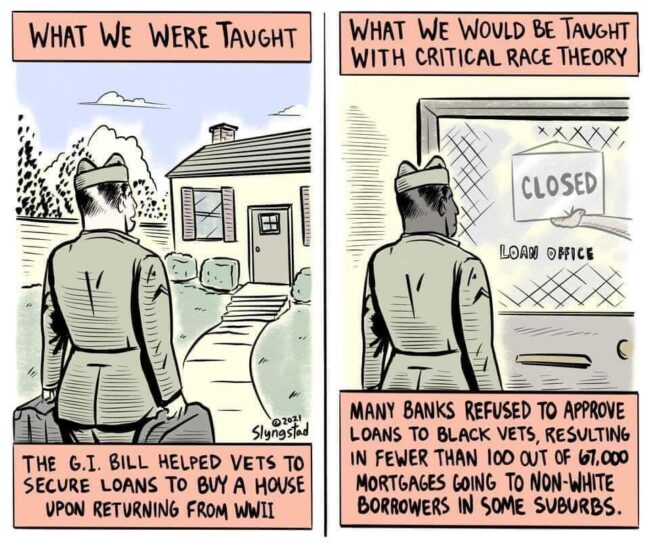
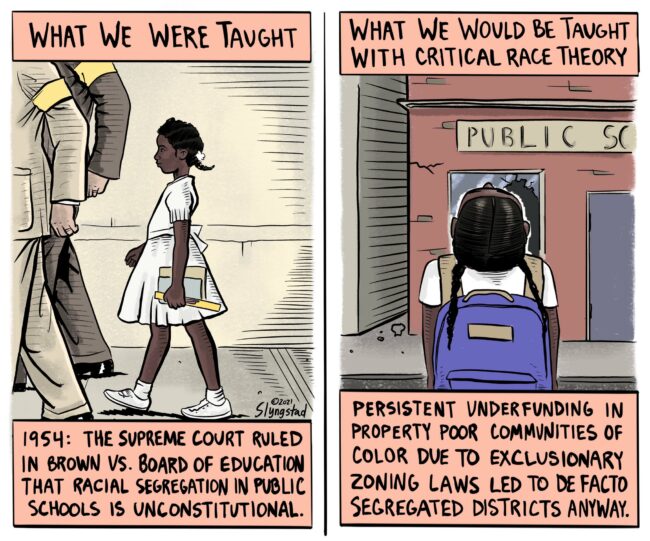
Bills and Other Measures
Map: Where Critical Race Theory Is Under Attack from Education Week
Map of LGBTQ Curricular Laws from the Movement Advancement Project
Mapping Attacks on LGBTQ Rights in U.S. State Legislatures by the ACLU
Maps on legislation, for and against anti-racist education from Chalkbeat
Map on local, state, and federal activity that attempts to restrict access to truthful information about CRT, race, and systemic racism from UCLA (see below)
Attacks on Teachers
The right-wing website The Daily Wire listed the names of those who signed the Zinn Education Project’s Pledge to Teach Truth and the communities in which they work. The Daily Wire’s goals are clear: to incite harassment and spread fear. Although we wish we could simply write off The Daily Wire’s hit piece as beneath contempt, we know it is already having negative consequences for many teachers, and therefore we offer a few possible responses to the accusation that teachers who signed the pledge are “flouting the law.”
- Educators are not pledging to flout the law; they are pledging to teach the truth, which cannot be done if these laws are followed.
- Educators have an ethical responsibility to tell the truth and these laws curtail their ability to do that.
- By banning educators from teaching about the truth about U.S. history, lawmakers seek to deny young people the right to understand — and so effectively act upon — the world they’ve been bequeathed. These bills are an attack on democracy itself.
- The burden of responsibility is not with educators who want only to be able to teach an honest account of U.S. history, but with the legislators who are making it illegal for them to do so. This legislation is designed to criminalize teachers, schools, and school districts.
- Laws are not by definition just; and there is a long and storied history in the United States of defying unjust laws: from the Underground Railroad to the sit-ins. Our conviction is that these anti-education bills are unjust laws.
The presidents of the American Federation of Teachers and the National Education Association have committed to defend teachers in the face of these attacks. The NEA offers Know Your Rights guidance and resources. PEN America offers an Online Harassment Field Manual. The Zinn Education Project team is working with the teacher unions and other educational justice partners to support teachers who signed the pledge and are under attack.
Teach Truth Pledge at a Historic Site
We invite you to take a photo with your pledge at an historic site and share it on social media with #TeachTruth. Read how.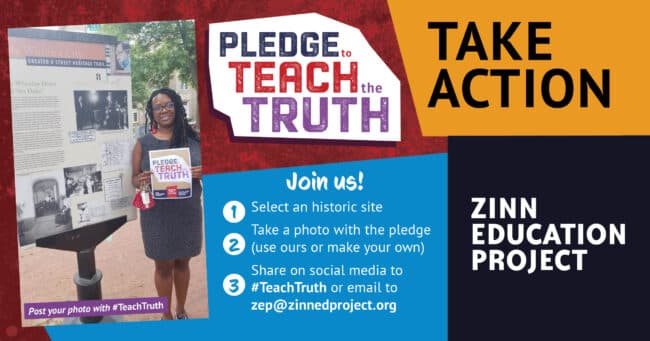
Teach Truth Syllabus
To make visible the teaching that the right is trying to suppress, here is a collection of lessons for a #TeachTruthSyllabus.
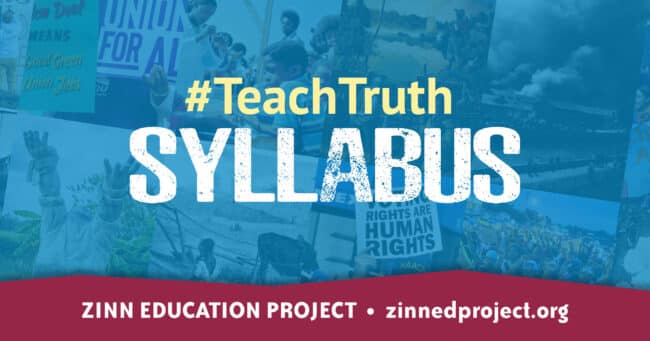
Resources
Addressing Book Challenges from We Need Diverse Books
Toolkit for Uniting Our Communities for Strong Schools and a Multiracial Democracy from Race Forward HEAL Together
Media Guide from the Zinn Education Project

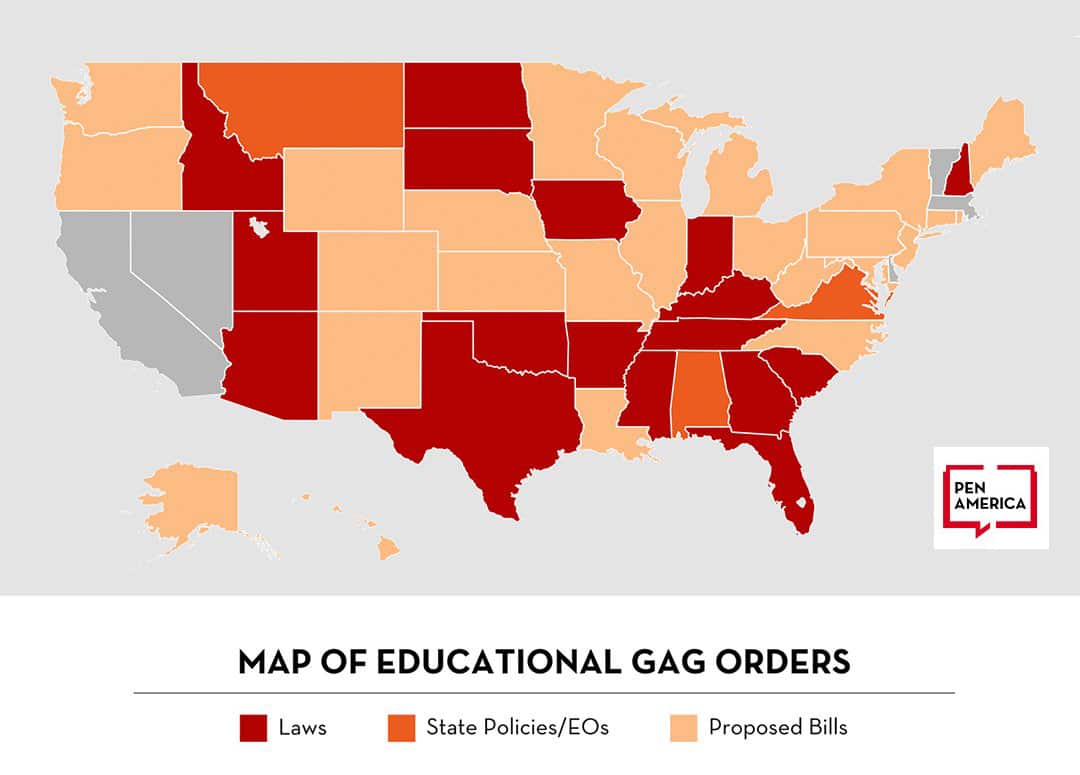
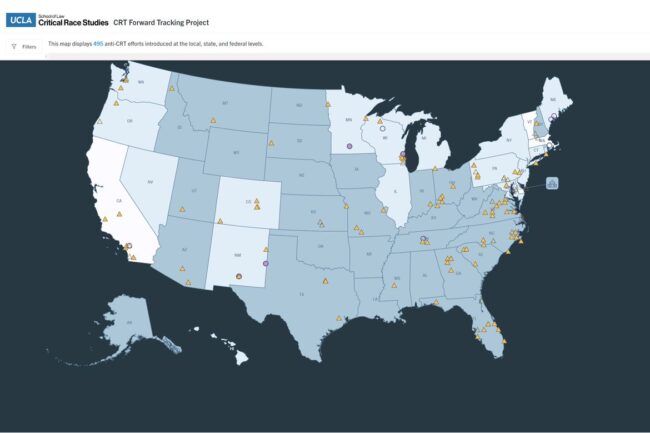
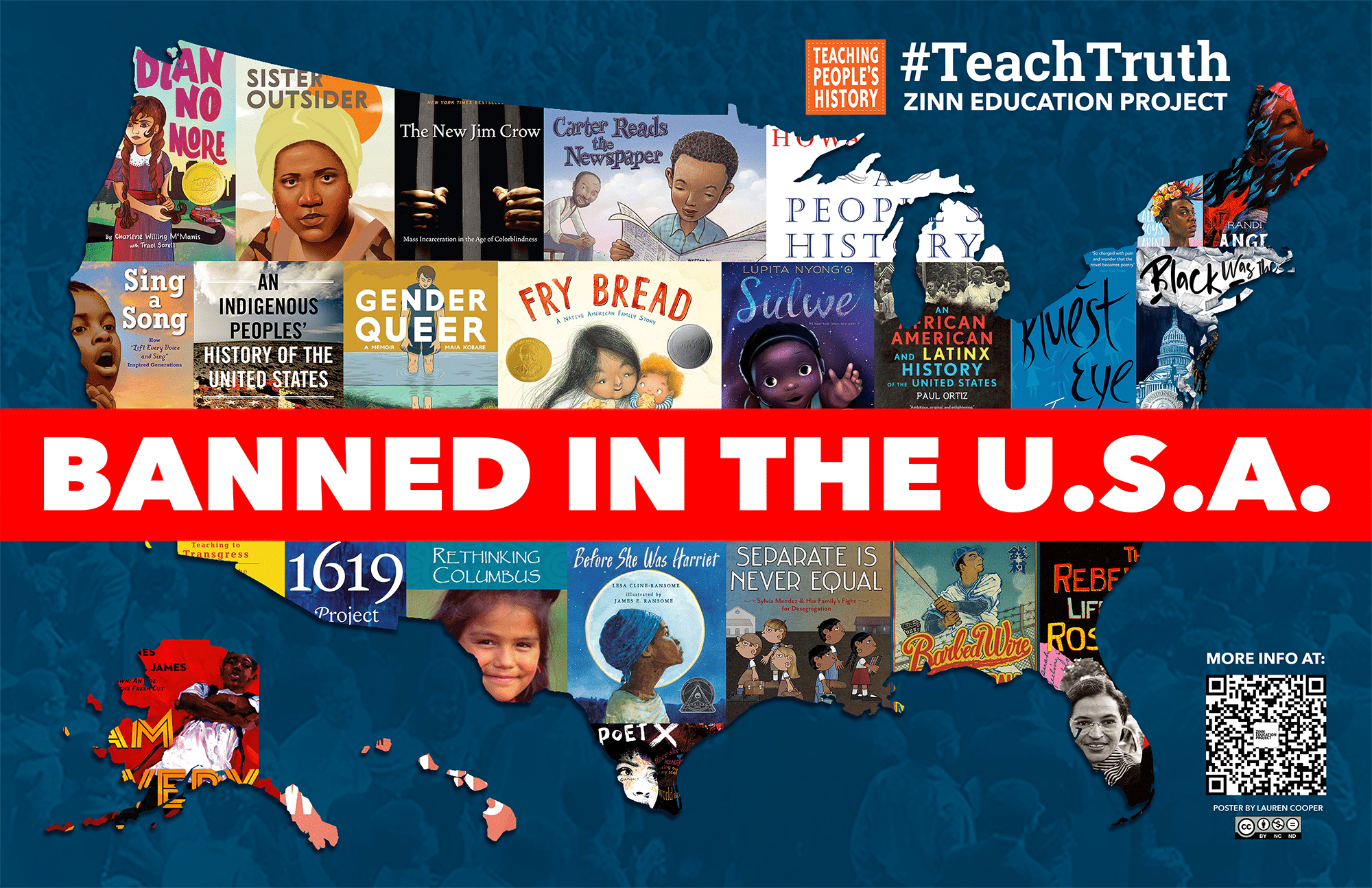
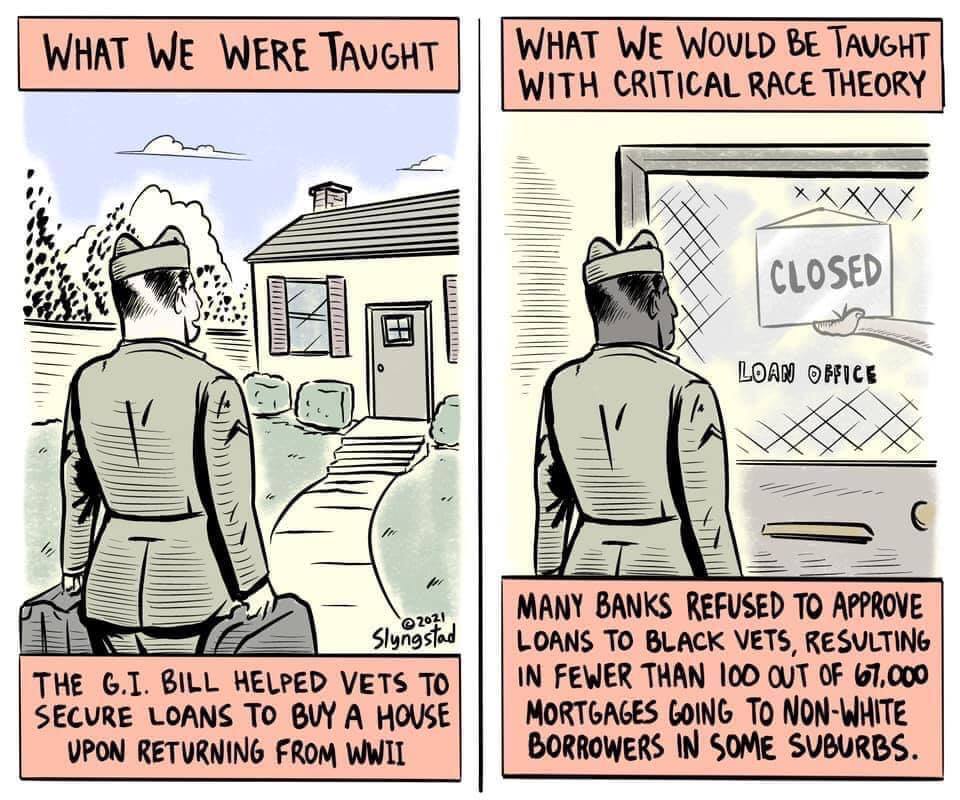
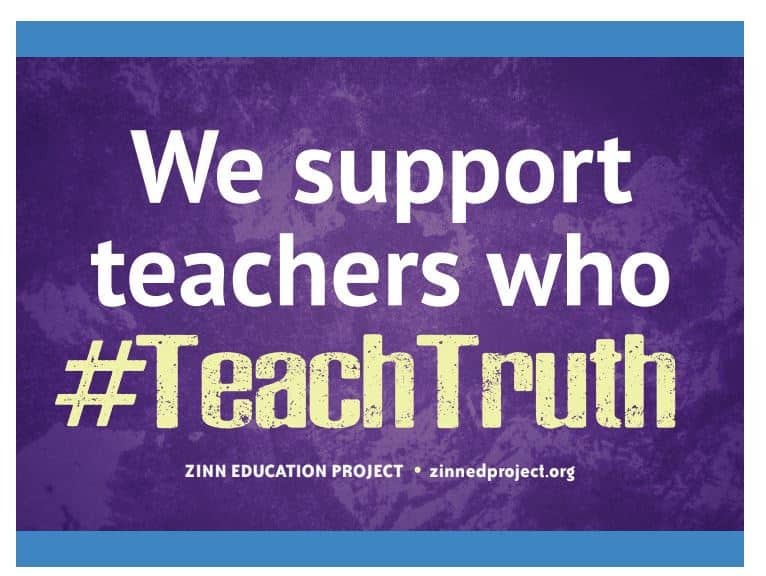





Twitter
Google plus
LinkedIn